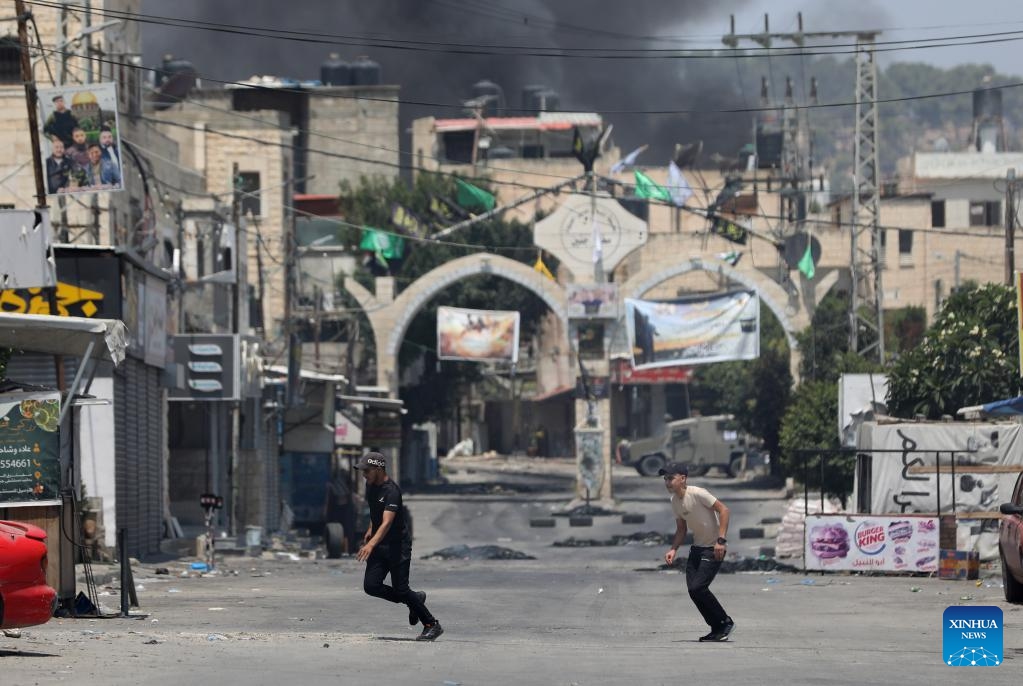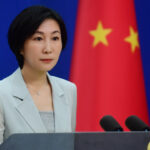The international community must refocus their attention on the Palestinian question to collectively work toward helping the Middle East gain peace and stability, analysts reached by the Global Times said on Tuesday after Israel’s recent large-scale attacks on Palestine.
Palestine on Monday decided to stop all contacts, meetings and security coordination with the Israeli government in protest against the latter’s brutal raids in the West Bank, the Xinhua News Agency reported Monday local time.
On Monday, the Israeli army, backed by armored vehicles, bulldozers, drones and helicopters, waged a large-scale military attack against the northern West Bank city of Jenin and the refugee camps there, according to Xinhua
At least eight Palestinians were killed and 80 others were injured during the raids, which Richard Hecht, an Israeli military spokesperson, said was an escalation unseen since 2006, according to media reports.
The recent escalating situation in the Palestine-Israel conflict is just verifying what we have always been saying: The Palestine-Israel issue is the core of Middle East issues and the region cannot realize peace and stability unless the problem is solved, Li Weijian, a research fellow with the Institute for Foreign Policy Studies of the Shanghai Institutes for International Studies, told the Global Times.
Li further emphasized that the solution to the problem seems to be even more urgent now given the wave of reconciliation in the region. He called on the international community to refocus attention on the issue.
Since January, 24 people, most of them Israelis, have been killed in a series of attacks carried out by Palestinians, and 180 Palestinians, including children and women, were killed by Israeli soldiers and settlers, Xinhua reported citing official figures.
Zhang Jun, China’s permanent representative to the United Nations on June 27 called for efforts to break the cycle of violence between Israelis and Palestinians and strive for common security.
It is important to break the cycle of violence. It is important to uphold the international rule of law and stop unilateral actions to change the status quo, and it is important to honor political commitments and advance the two-state solution, he told the UN Security Council, Xinhua reported.
The continued conflict has deep and intricate historical, religious and ethnic causes. However, in terms of geopolitics, the West’, especially the US’ long-standing unfair Middle East policy, which has raised concerns within the international community, has created obstacles to addressing the conflict, according to Li.
Israel heavily relies on the US, but the two allies have witnessed growing cracks in their relationship in recent years alongside significant changes in the regional situation, particularly after Saudi Arabia and Iran resumed relations with the help of China, explained Niu Xinchun, a research fellow at the China Institute of Contemporary International Relations in Beijing.
After the successful mediation between Saudi Arabia and Iran, the international community expects China to continue playing a greater role in the Palestine-Israel issue.
At the invitation of President Xi Jinping, President of the State of Palestine Mahmoud Abbas paid a state visit to China from June 13 to 16. During a meeting of the two leaders on June 14, Xi put forward a three-point proposal for the settlement of the Palestinian question. Xi stressed that the Palestinian question has remained unresolved for over half a century, causing great sufferings to the Palestinian people; justice must be done to Palestine as soon as possible.
During his meeting with US lawmakers in Jerusalem last week, Israeli Prime Minister Benjamin Netanyahu revealed that he was set to visit China next month. Although the planned trip has not been confirmed by Chinese authorities, analysts reached by the Global Times said they look forward to Netanyahu’s visit and hoped the trip would play a role in helping promote peaceful solution to the Palestine-Israel.
Some experts view Netanyahu’s visit to China as an attempt to remind the US that Israel has other diplomatic options besides Washington. They noted that the world is transitioning from a unipolar world controlled by the hegemonic US to a multipolar world. The US’ influence on others is declining and countries all around the world are stressing diplomatic independency, including Israel.
Obviously, the adjustment of Saudi Arabia’s diplomatic strategy has inspired Israel. Netanyahu’s planned visit to China is expected to not only strengthen China-Israel relations, but also potentially lead to progress in the establishment of diplomatic relations with Saudi Arabia as well as peace talks between Palestine and Israel, Niu told the Global Times on Tuesday.
But Niu emphasized that recent events in the Middle East should not be viewed from the perspective of a zero-sum game. Whether it is the resumption of diplomatic relations between Saudi Arabia and Iran, peace talks between Palestine and Israel, or the possible establishment of diplomatic relations between Saudi Arabia and Israel in the future, no matter who mediates, it is conducive to peace in the Middle East and these efforts would be truly win-win and multi-win, he stressed.
(Global Times)




